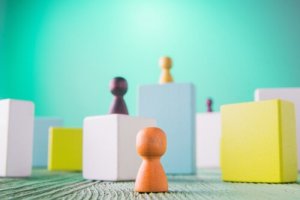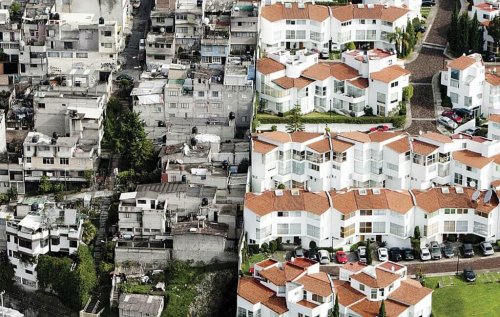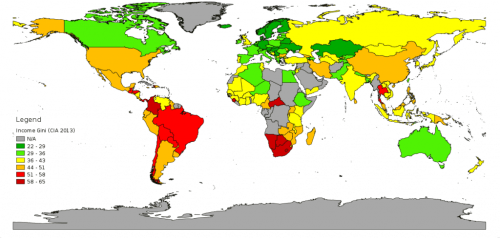The Psychological Impact of Inequality

Inequality is very common nowadays, although some people experience more and others experience less. This inequality applies to both money and opportunities. This obviously affects our lifestyles as well as our quality of life. However, the effects of inequality don’t just stop there. There are also psychological effects we must be aware of.
The current context is characterized by difficulties and economic instability and it tends to create bigger differences between social classes. This is why we have three well-defined classes: the rich (those who can have whatever they want), the middle class (those who have a lot less than rich people), and the poor (those who have nothing). Economy and social classes produce the psychological effects we’ll be talking about next.

Daily inequalities
The social class we belong to influences the way we perceive reality, how we feel, and how we behave. Lower class people tend to perceive that the events that happen around them depend on external forces that are beyond their control. These people tend to be more empathetic and compassionate. In addition, they tend to do nice things for others without expecting anything in return.
On the other hand, the difference between the amount of money that the poorest people have and the money the richest people have will determine the economic inequality of a society. Thus, if the rich have 20 times more money than the poor in one society and 1000 times more in another, the first society will have less economic inequality than the second. Likewise, people from more unequal societies tend to be more distrustful, compete more for economic resources, and are in favor of economic inequalities.
Social class inequality
We all grow up in a determined social class. In fact, most of us will always live in a social class very similar to the one we grew up in. Therefore, we develop a way of thinking, feeling, and acting that’s very similar to those of the people around us. This, in turn, determines the way we relate to other people.
Lower class people usually live in uncertain environments, places where they feel very vulnerable and get scared frequently. This leads them to believe that their actions and the opportunities they have don’t depend on them but on external forces they can’t control. They’re basically more sensitive to the context.
Upper class people have more economic resources and a higher social hierarchy. They live in societies with more security, freedom of choice, and stability. Therefore, these people learn to perceive that they have the ability to influence the context and, unlike lower class people, they become more sensitive to what others think of them.
Although the lower class develop greater empathy, upper class people are more precise when it comes to identifying the emotions felt by the people they interact with (cognitive empathy).

Economic inequality
Economic inequality is a consequence of the way resources are distributed in a society. The distribution may be more egalitarian or more unequal.
It’s evident at first glance that lower class people struggle more in unequal societies. They might deal with things such as obesity, unwanted pregnancy, substance abuse, and higher crime rates. However, there are also psychological issues that we must take into account.
People who live in more unequal societies tend to be more distrustful. Therefore, they tend to behave rudely towards others and participate less in social activities. On the other hand, there’s a lot more competitiveness in very unequal societies. When people feel underappreciated, it’s not uncommon for them to experience high anxiety levels, especially when they have a low status. Some try to avoid this by valuing themselves in a more positive way.
Ultimately, equal societies are the best ones to live in. They have a lot of benefits. In addition, social classes tend to be more similar in equal societies.
The worst part about social inequality is that the greater the inequality in a country, the more likely it’ll be that its inhabitants will prefer a more unequal society and worry less about the problems this may bring.
This text is provided for informational purposes only and does not replace consultation with a professional. If in doubt, consult your specialist.








